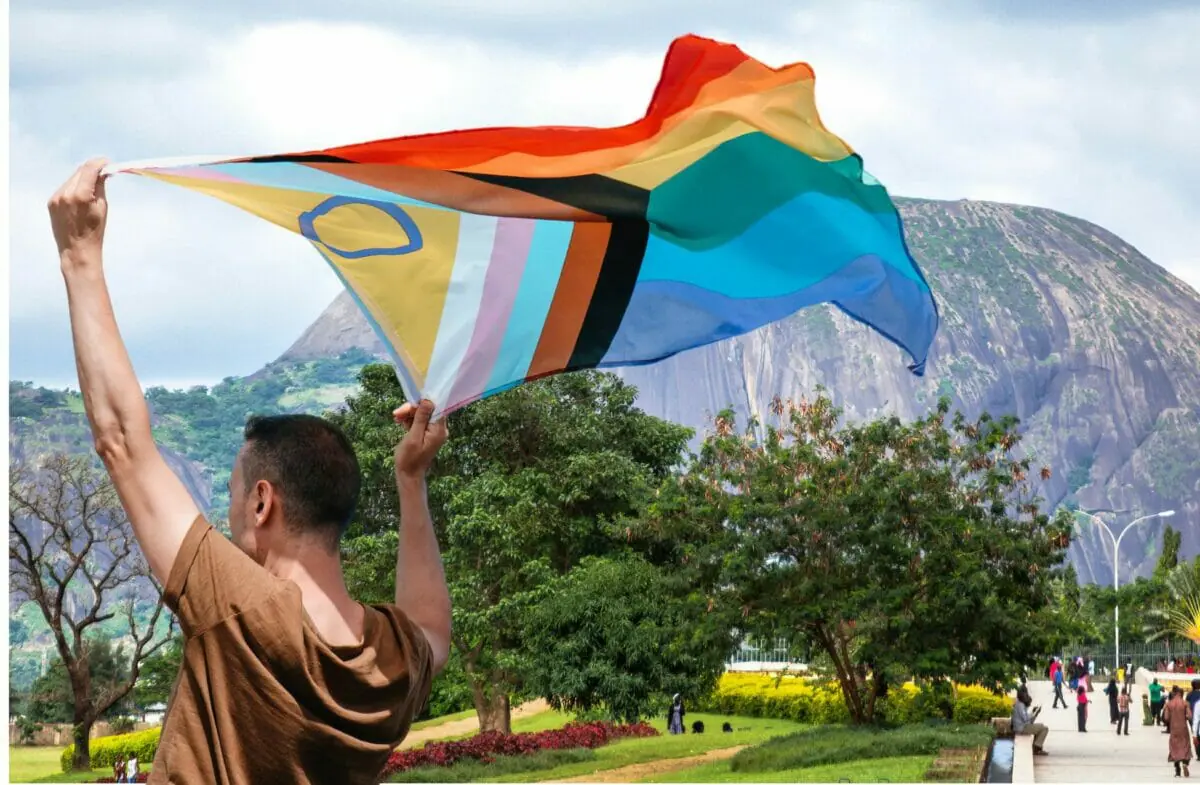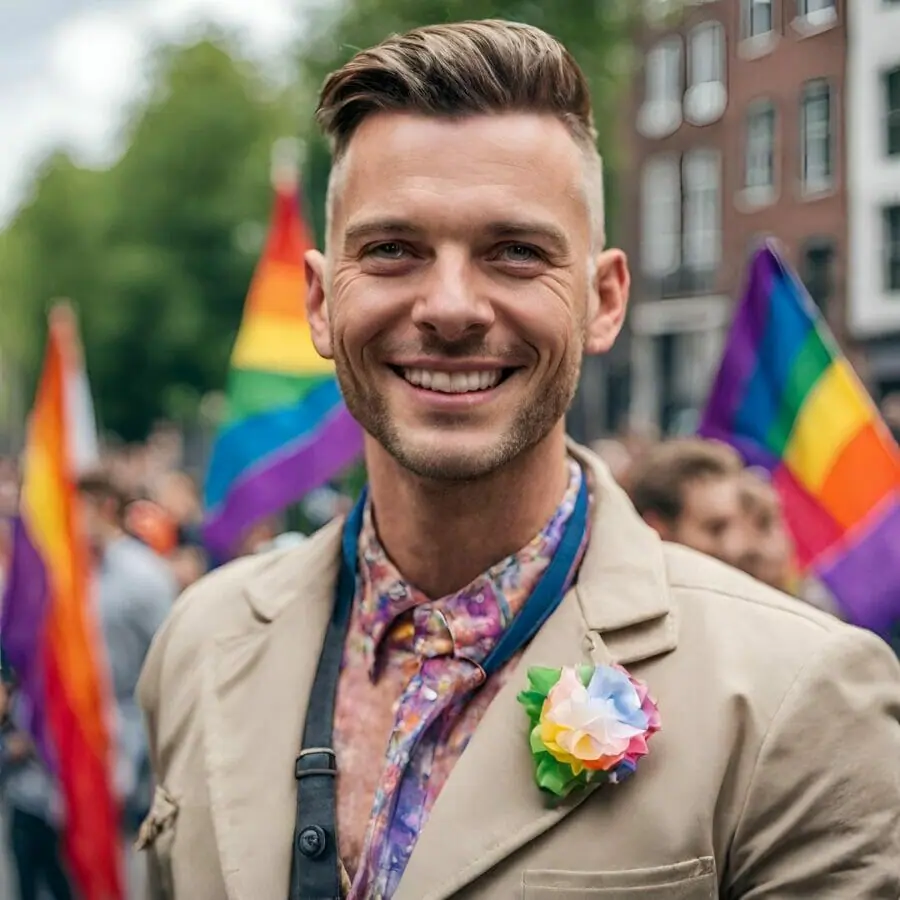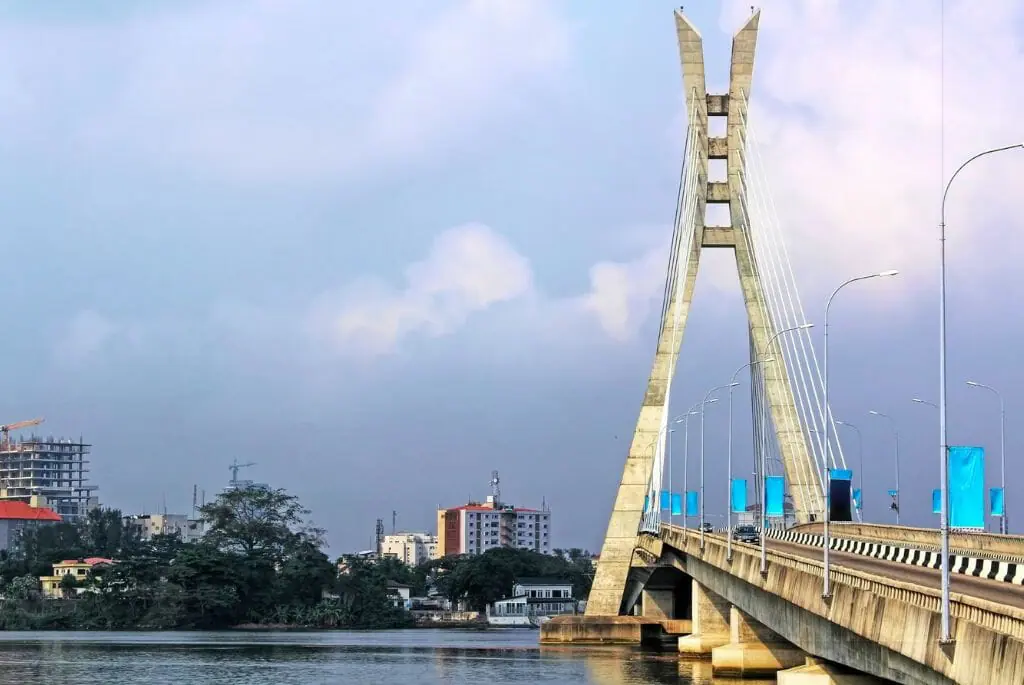At the crossroads of ancient traditions and rapid modernization, Nigeria stands tall as the most populous country in Africa, presenting a rich tapestry of cultures, languages, and landscapes. For many, the allure of Nigeria is undeniable: from the rhythmic beats of Afrobeat echoing from bustling marketplaces to the sacred groves of Osun and the sprawling cityscape of Lagos.
But within this vibrant mosaic lies a more concealed narrative, one that is both compelling and cautionary for the LGBTQ+ traveler. This is the story of Gay Nigeria, a resilient community thriving in the shadows, dancing to its own rhythm while navigating a landscape fraught with challenges.
While Nigeria offers an intoxicating blend of urban vibrancy, historical depth, and natural beauty, it is essential to understand its socio-political undercurrents, especially regarding LGBTQ+ rights. Nigerian laws are severe, with homosexuality being illegal and punishable by up to 14 years in prison.
In some northern states where Sharia law is implemented, the penalties can be even more draconian, including the death penalty. These laws are not mere relics of the past; they are actively enforced, making it imperative for LGBTQ+ travelers to exercise extreme discretion.
Yet, amidst this challenging backdrop, a resilient Gay Nigeria exists. Underground events, clandestine gatherings, and secret networks weave a subculture that pulsates with life, love, and an indomitable spirit. Nigeria’s nightlife, especially in cosmopolitan hubs like Lagos, offers glimpses into this world, albeit shrouded in secrecy and coded language.
For the seasoned and proud LGBTQ+ globetrotter, Gay Nigeria offers a testament to the universal human spirit and a stark reminder of the journey ahead. While we firmly believe that being queer should not limit one’s travel aspirations and that traveling can be a powerful tool for cultural exchange and promoting understanding, Nigeria requires caution beyond many other destinations.
In conclusion, Nigeria is a land of contrasts, a place where immense beauty and profound challenges coexist. If you’re considering a visit, weigh the risks carefully and understand the potential implications.
If you’re unwilling to compromise or hide facets of your identity, it might be best to channel your wanderlust elsewhere. But for those who venture, do so with open eyes, a cautious heart, and the knowledge that you’re treading paths less traveled in the intricate narrative of Gay Nigeria.
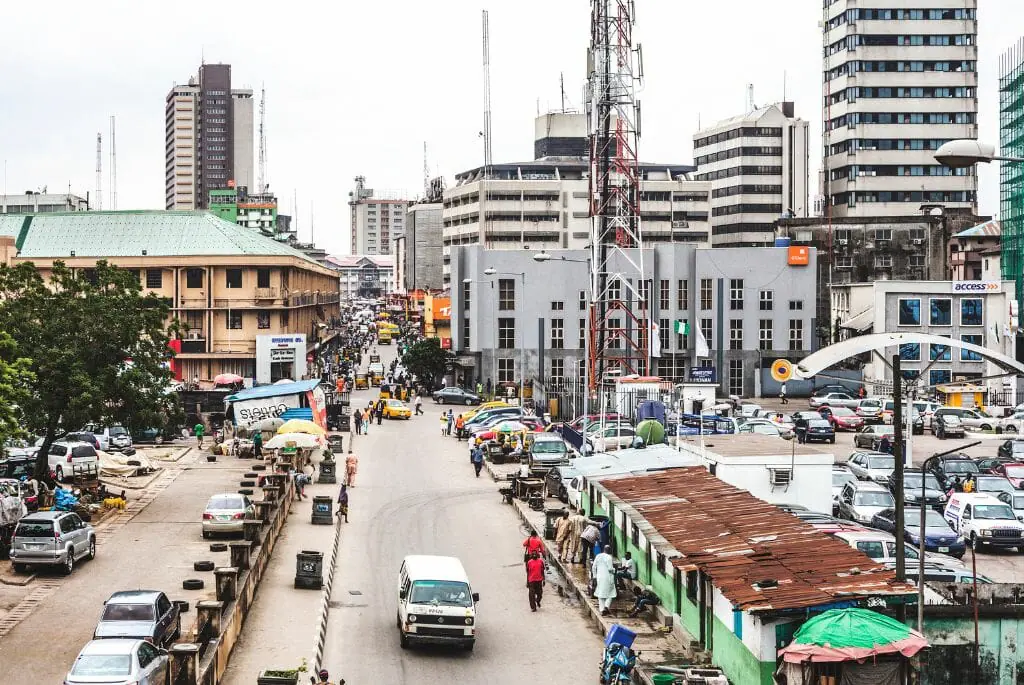

History of LGBT Rights In Nigeria
LGBT rights in Nigeria have long been a contentious issue, with the general public historically objecting to homosexuality and transgender identities. In January 2014, President Goodluck Jonathan signed into law the Same-Sex Marriage Prohibition Act, commonly known as the Anti-Gay Law. The law effectively prohibits identifying as an LGBTQ person, which is punishable by up to fourteen years in prison.
The situation for locals is challenging, as they face prejudice and persecution due to the strict enforcement of these laws. For instance, there is no legal protection against discrimination based on sexual orientation or gender identity in areas like employment and housing. Additionally, changing one’s gender is illegal in Nigeria.
Tourists may not be subjected to the same level of scrutiny as locals, but it’s essential to remember that the law still applies to everyone in the country. Regardless of your nationality, it’s crucial to exercise caution and vigilance while traveling in Nigeria. Remember, the situation can change quickly, so always seek current advice before you visit the country.
As an LGBT traveler, there are a few steps you can take to ensure your safety while in Nigeria:
- Avoid discussing your sexual orientation or gender identity in public – While it may be tempting to be open about your identity, remember that these conversations can put you and others at risk in Nigeria.
- Do not participate in any LGBTQ activities or events – It’s best to refrain from attending or hosting any events that might draw attention to the LGBTQ community. This includes Pride parades, workshops, or other gatherings.
- Research safe spaces and accommodations – It’s essential to familiarize yourself with establishments known to be LGBTQ-friendly or have a reputation for inclusive policies. This can help ensure both your comfort and security while traveling.
- Stay updated on the local news and political situation – Doing so will help you stay informed about any possible changes in the legal landscape and relevant safety concerns.
Keep in mind that information can be outdated, and situations can change fast in Nigeria. Always seek current advice from reputable sources before planning your trip. While it’s essential to remain vigilant and exercise caution, it’s crucial to acknowledge that bad actors exist everywhere, and a small minority should not deter you from experiencing the rich culture and beauty of Nigeria.
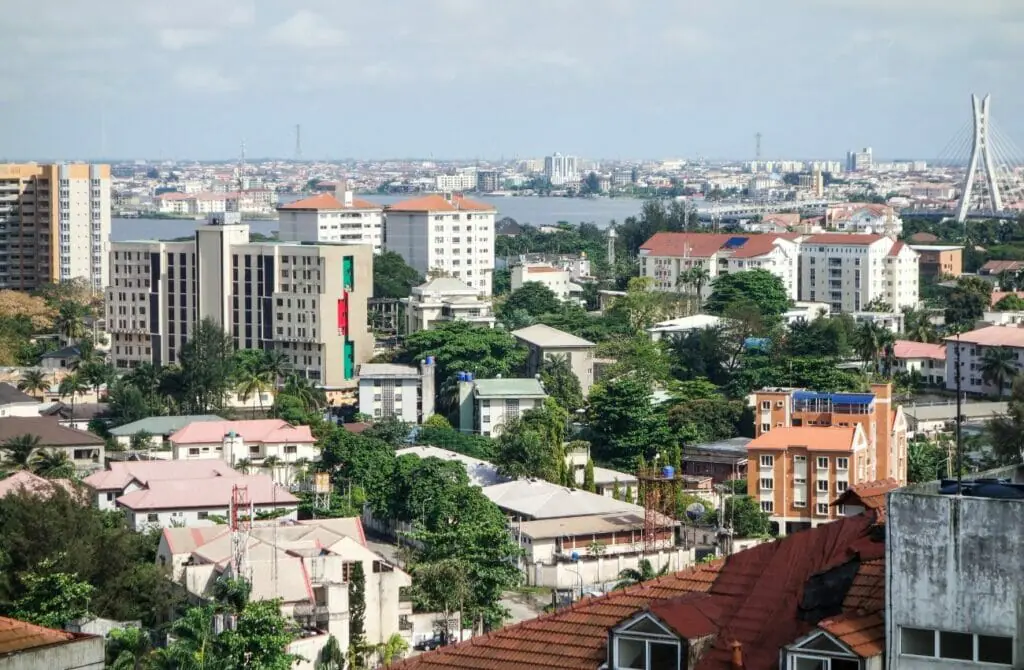
The LGBT Current Situation In Nigeria
LGBT rights in Nigeria are limited and often punitive. Sex acts between men are illegal under the Criminal Code and carry a maximum penalty of 14 years imprisonment. Furthermore, Nigerian President Goodluck Jonathan signed the Same-Sex Marriage (Prohibition) Act into law, which brought about a significant rollback of basic rights in the country.
For locals, this means living under constant threat of persecution and violence. Although tourists might not experience the full extent of this discrimination, they must remain vigilant. Situations can change rapidly, and information may be outdated, so seeking current advice before traveling is critical.
As an LGBT traveler, it is essential to learn about the local laws and customs and exercise discretion when necessary. Always err on the side of caution, and be aware that anti-LGBT sentiment may still be present in various parts of the country. If possible, connect with local LGBT organizations to get accurate, up-to-date information and support while you are in Nigeria.
To protect yourself, avoid engaging in overt displays of affection, and be cautious when discussing your sexuality or relationship status with locals. Please register with your country’s embassy or consulate in Nigeria so they are aware of your presence and can provide assistance in case of emergencies.
Remember that while Nigeria has a long way to go in terms of LGBT rights and acceptance, not everyone harbors ill intentions, and there can be allies within local communities. By staying aware, communicating with trusted sources, and taking necessary precautions, you can navigate the complex landscape of LGBT rights in Nigeria and have a safe and fulfilling experience.
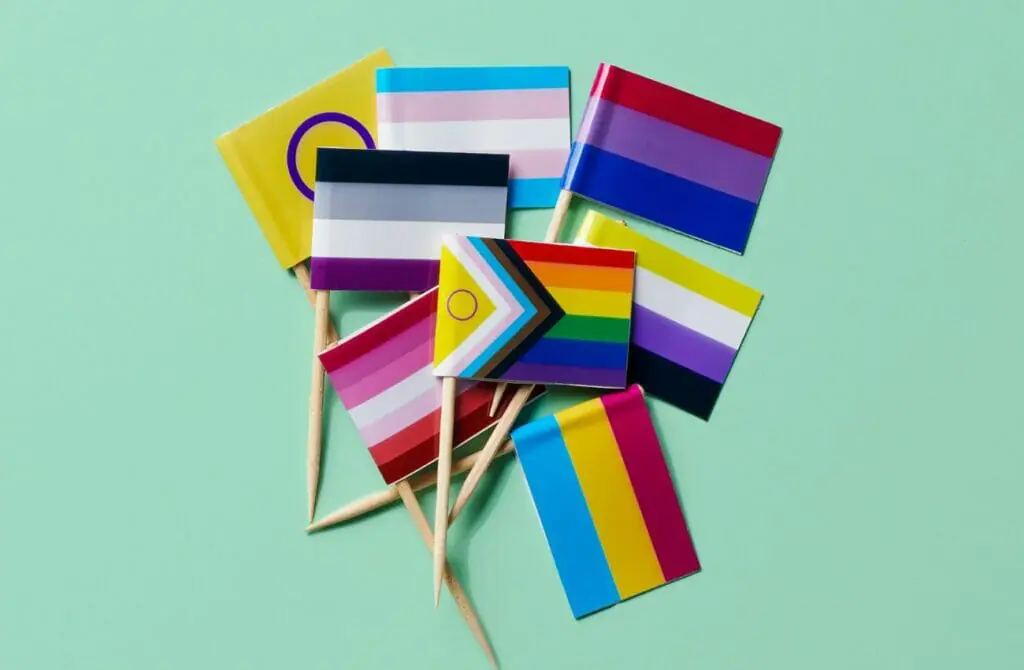

The Future For The Queer Community In Nigeria
LGBT rights in Nigeria have been a contentious issue, with sex acts between men being illegal under the Criminal Code that applies to southern Nigeria, carrying a maximum penalty of 14 years’ imprisonment. Despite these anti-gay laws, a growing acceptance of gay men and women in Nigeria has been observed in recent years, offering a seed of hope for the future.
When it comes to the situation for tourists, the experience might be different from that of local LGBT individuals. While local LGBT people face significant challenges and discrimination, tourists may have more protection and support from their government and consular services. However, it is always important for LGBT visitors to remain cautious and vigilant, as bad actors exist in every country.
To protect oneself while traveling in Nigeria, it is crucial to constantly monitor the situation and seek up-to-date information and advice before departing. Additionally, being discreet about one’s sexual orientation or gender identity is wise to avoid unnecessary risks. It is also essential to respect local customs and cultures and to understand that legal protection for LGBT people is limited.
It is worth mentioning that steps can be taken to improve the situation for LGBT rights in Nigeria. Increased awareness and support, both locally and internationally, could lead to advocacy, lobbying, and educational efforts aiming to reduce discrimination and create a safer environment for all.
While there’s a sense of cautious optimism for the future of LGBT rights in Nigeria, travelers should always be mindful of potential dangers. As the situation can change rapidly, it is vital to stay informed and vigilant while enjoying the diverse and unique culture Nigeria has to offer.
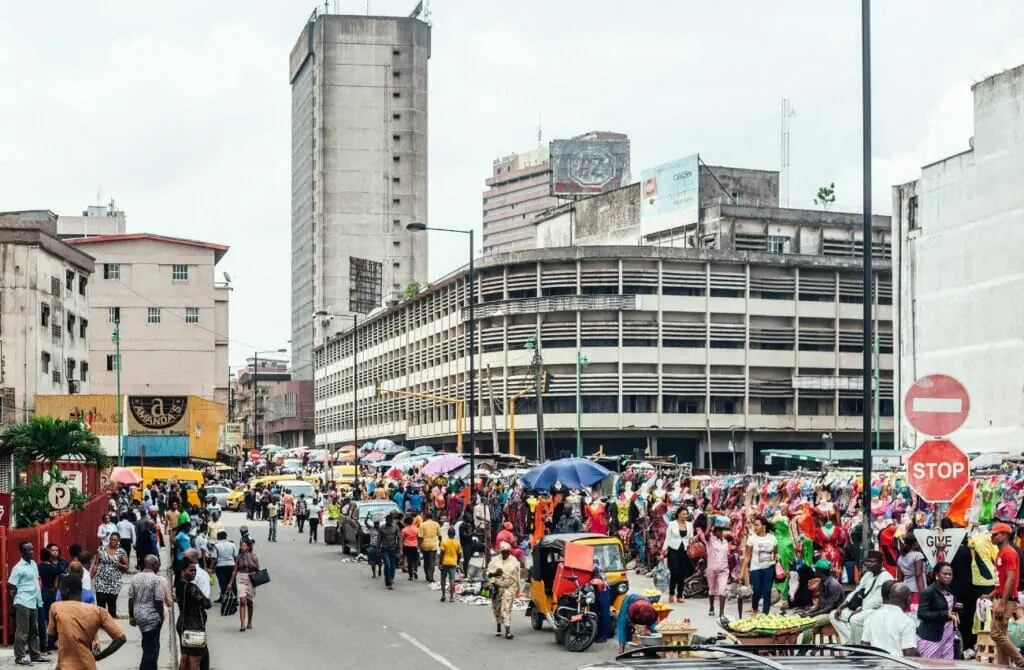
Protect Yourself While Travelling In Gay Nigeria
LGBT rights in Nigeria are limited, and the country has laws criminalizing same-sex acts, with severe penalties that affect both locals and tourists. As a traveler, it is crucial to be aware of the situation and take steps to ensure your safety.
While locals face a higher risk of discrimination and violence, tourists may experience challenges as well, particularly if they engage in public displays of affection or openly discuss their sexual orientation. It’s essential to be discreet about your relationships, sexual orientation, and gender identity while visiting Nigeria.
To protect yourself, research local laws, customs, and attitudes before traveling. Stay vigilant while in Nigeria, and consider connecting with local LGBT advocacy groups such as The Initiative for Equal Rights (TIERs), as they can provide advice and support.
When it comes to accommodations and nightlife, exercise caution in choosing where to stay and socialize. Opt for hotels and venues known to be LGBT-friendly or tolerant, and avoid attending events or participating in discussions that may draw unwanted attention.
As for socializing, tread with care and avoid discussing your personal life or sexual orientation with new acquaintances until you feel safe and comfortable. Additionally, be cautious when using dating apps or engaging in intimate encounters with locals, as discretion is crucial for both your safety and theirs.
Finally, keep in mind that situations involving LGBT rights can change rapidly in Nigeria, and information may become outdated. Always seek current advice before traveling, and remember that there are bad actors in every country, so stay vigilant and prioritize your safety above all.
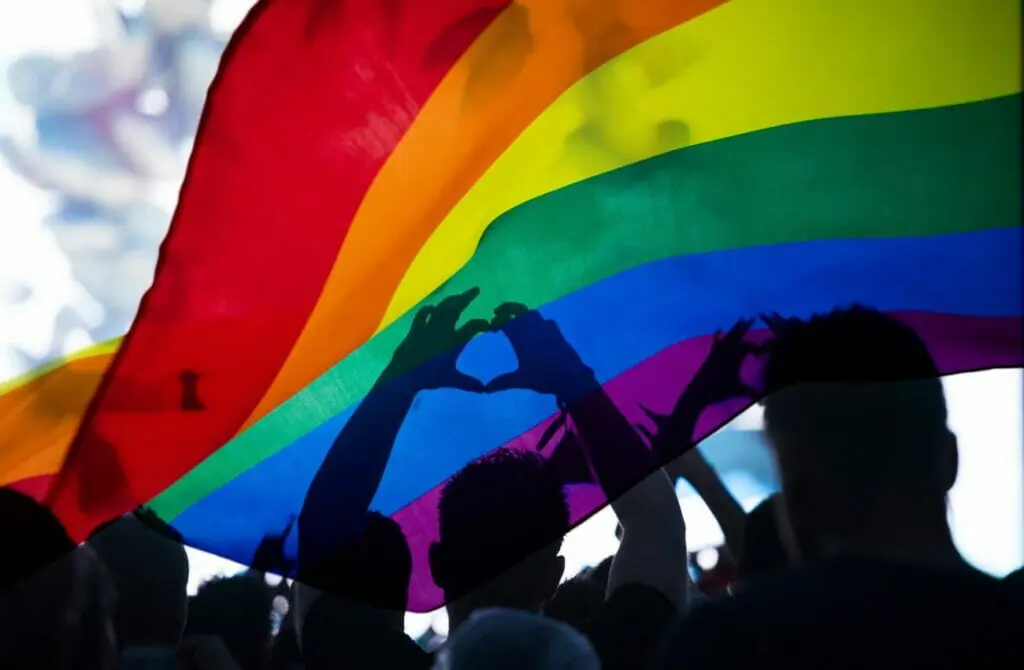

Most Popular Gay Destinations In Nigeria
Nigeria, a land of diverse landscapes and rich cultural heritage, offers travelers an array of experiences, from bustling metropolises to serene nature reserves. For those seeking to uncover the vibrant pulse of this West African gem, there’s no better starting point than its cities, each one encapsulating a unique story, flavor, and rhythm. Presented in alphabetical order to honor each destination without hierarchy, this guide dives deep into Nigeria’s most sought-after spots.
Among these are some that have, surprisingly, been labeled as the ‘best gay destinations in Nigeria’. Yet, it’s imperative to understand that while these cities might resonate with certain sections of the global queer community, they are by no means gay-friendly. Gay Nigeria thrives in pockets, an underground tapestry of resilience and rebellion.
However, it’s crucial to emphasize the distinction between popularity and acceptance; just because a destination is frequented doesn’t mean it’s openly welcoming to all facets of LGBTQ+ expression.
For many, Nigeria’s allure lies in its juxtaposition of the ancient and modern, the sacred and the secular. Whether you’re wandering the historic alleys of Kano, soaking in the coastal vibes of Lagos, or marveling at the architectural splendors of Abuja, you’re engaging in a journey that intertwines tradition with contemporary aspirations.
However, as spirited travelers keen on exploring the diverse narratives that contribute to Gay Nigeria, one must exercise discretion and respect local sensibilities. Always remember, while our quest for understanding and connection takes us to far-flung corners, safety and respect should always guide our wanderlust.
Lagos, Nigeria’s sparkling jewel, beckons with its sun-kissed beaches, a nightlife that dances to a rhythm of its own, and an urban tapestry rich in contrast and intrigue.
Yet, beneath its shimmering façade, darlings lies a complex narrative; while the city pulses with undeniable energy, LGBTQ+ travelers must tread with elegance and caution, embracing Lagos’ charm while remaining ever-mindful of its hidden intricacies.


